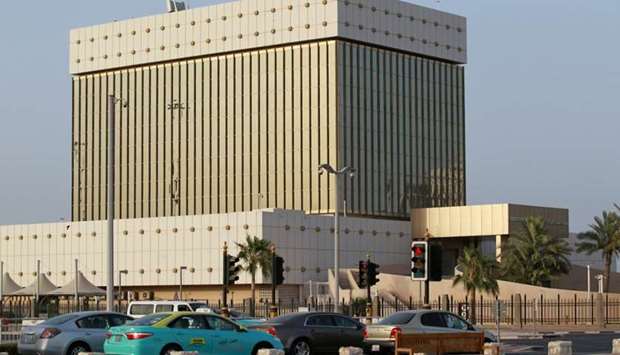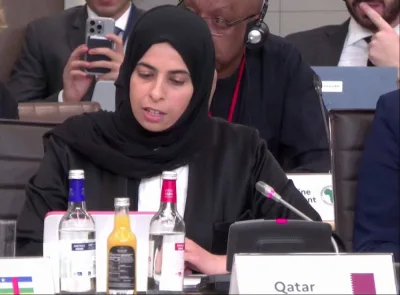Qatar’s external and fiscal balances are expected to show marked improvement this year despite the ongoing economic blockade and growing emerging market stress, according to a US-based economic think-tank.
Although the diplomatic rift with the Saudi-led bloc is well into its second year and shows no signs of abating, economic activity has continued to pick up in Qatar, said the Institute of International Finance (IIF).
Qatar's fiscal balance is on track to return to a surplus for the first time since 2015 and remain in surplus next year. Higher hydrocarbon prices are the major driver for 2018, while non-hydrocarbon revenues are likely to increase in 2019 with the scheduled introduction of a comprehensive value added tax (VAT).
However, uncertainty remains over VAT implementation in view of continued high oil prices, the IIF said, highlighting that there has been 37% rise in average oil prices in 2018.
The country's fiscal surplus amounted to 3.5% of gross domestic product (GDP) this year and seen further to 3.7% in 2019 compared with fiscal deficit of 2.7% in 2017.
Growth is likely to rise from 1.6% in 2017 to around 2.3% in 2018, primarily on the back of the non-hydrocarbon sector (driven by construction), but aided by stable hydrocarbon production after several years of contraction.
Construction activity, funded through years of accumulated oil and gas proceeds, is likely to remain strong over the medium term, the report said, adding meanwhile, hydrocarbon activity is set to rise substantially, with a commitment to increasing the LNG (liquefied natural gas) processing and export capacity by 30% over the next five to seven years.
Qatar is the world’s largest exporter of LNG, with particularly strong demand from East Asian countries.
"The expansion is in its initial stages, but seems plausible," the IIF said, adding even without a rise in export volumes, the rise in hydrocarbon prices in 2018 has caused the country’s trade surplus to widen significantly.
Qatar Petroleum, the country’s hydrocarbon bellwether, recently announced the country’s plan to increase LNG output to 110mn tonnes per annum from the present 77mn tonnes.
Capital inflows have been very strong, in stark contrast to other emerging markets and neighbours in the Gulf.
Qatar issued a $12bn triple-tranche Eurobond in April at modest premiums over US Treasuries, attracting significant interest from foreign investors even in the face of an offering of similar size from Saudi Arabia.
The local stock market index has been noted as the top performer worldwide in 2018, even while Gulf neighbours such as Dubai have shown weakness. Additionally, banks saw non-resident inflows of $9bn in the first quarter, with both non-resident deposits and bank loans picking up, the IIF said.
More recently, Qatar’s government pledged to inject $15bn into Turkey’s beleaguered banking system, in a clear demonstration of its continued strength — not only can it withstand crisis domestically, but it can assert its influence on the broader region.




